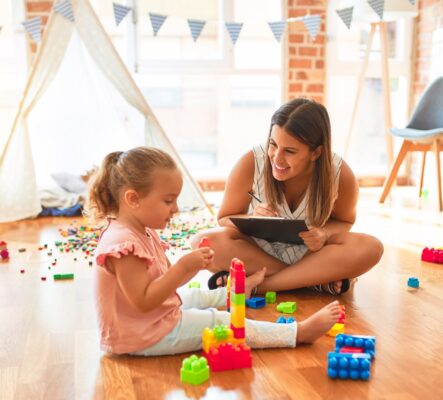
As a parent seeking out resources for their child, one will come across new terminology that can be hard to understand. We have put a list of frequently used terms in ABA, in order to explain what they mean.
First and foremost, you’ll definitely be hearing the terms “BCBA” and “RBT” at the beginning of starting services.
BCBA (Board Certified Behavior Analyst)
This is a certified individual that develops and implements a national certification program for behavior analysts. In other words, this individual is the one that will conduct assessments, create treatment plans, conduct parent meetings, in order to ensure that the client is receiving adequate services and making progress. They are the “supervisors” on the case and will oversee a team of RBTs and BTs.
LBA (Licensed Behavior Analyst)
In Texas, BCBA’s also need to be licensed in the state to practice ABA services.
RBT (Registered Behavior Technician)
An RBT is a paraprofessional certification in behavior analysis, they practice under the supervision of a certified therapist, such as a BCBA. RBTs assist in delivering behavior analysis services on a 1:1 basis. They are also credentialed by the BACB (Behavior Analyst Certification Board). This means that they earned this certificate through training and passing an exam and need to recertify to maintain their credential. Like BCBA’s they also have a code of ethics to abide by.
BT (Behavior Technician)
ABT is a paraprofessional certification in behavior analysis, they practice under the supervision of a certified therapist, such as a BCBA. The difference between and RBT and a BT is that a BT has not yet passed their RBT exam in order to gain that credential. At LSAC, we will use a BT to RBT development program to ensure all our BTs are RBTs within 60-90 days of hire.
ABA Terms
Now we begin to go into the terms that play a huge role when creating treatment plans, programming, and implementation.
IA (Initial Assessment) – An initial assessment is the 1st step to starting services. This is done by a BCBA in the home or office to determine your child’s strengths and goals for ABA therapy. A few assessments will be completed to develop an individualized treatment plan. Assessments include interview-style surveys and direct tests with your child.
Treatment plan – A detailed plan with information about a patient’s diagnosis, the goal of treatment, the treatment options, and the expected length of treatment.
Behavior Intervention Plan (B.I.P.) – This takes the results from a Functional Behavior Assessment (FBA) and turns it into a plan of action. It includes any behavior we will be targeting for reduction as well as the plan to address the behavior and replacement behaviors we will teach.
Tact – A label for something the client sees, hears, smells, feels, or tastes.
Mand – A request for a want or need.
Pairing – The process of building rapport with a client, as well as getting to know what the client’s favorite items and or activities are.
Lastly, just to finish up this little lesson are two strategies we like to use D.T.T. and N.E.T.
Discrete Trial Training (D.T.T.) – Involves breaking skills down into smaller components and teaching them in smaller sub-skills individually.
Natural Environment Teaching (N.E.T.) – Involves incorporating the learner’s natural environment into the teaching, development, and generalization of skills.
LSAC offers collaborative and compassionate ABA Therapy to children 0-21 years old. Offering both center-based and home-based care, LSAC is excited to empower families by providing them with the support they need. For more information, please email us at autism@littlespurs.com



